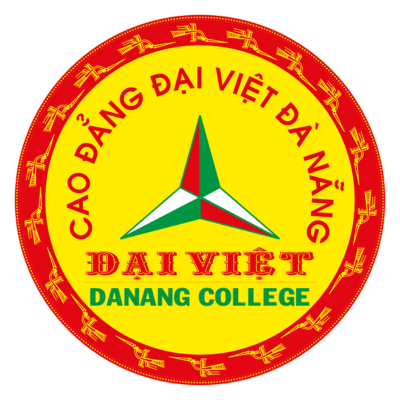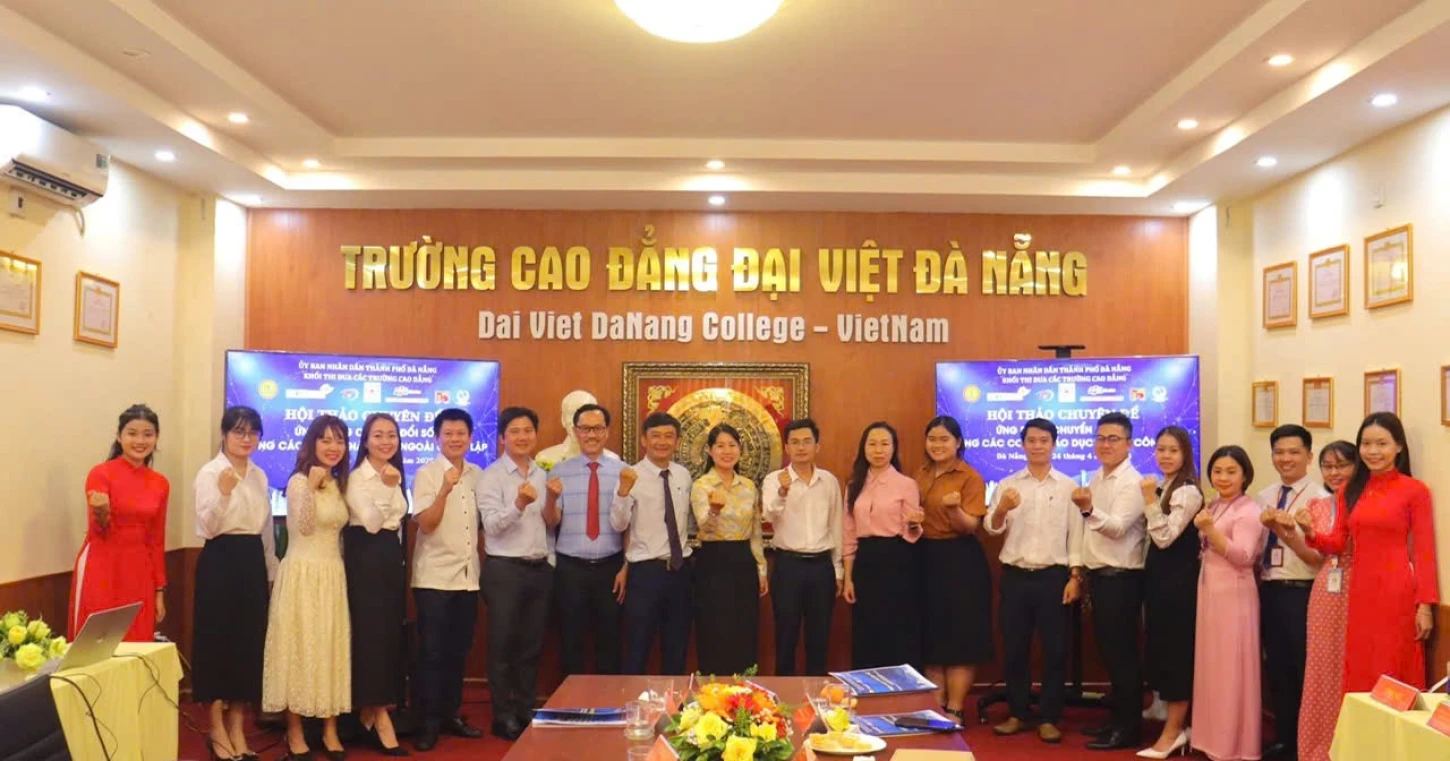The goal of vocational education is to train the workforce to meet the human resource needs for direct participation in production, business, and service processes. In the face of the risk that the direct workforce might be replaced by technological applications, digital transformation is not only an essential requirement but also considered a key factor to enhance the quality of training and create a high-quality workforce to meet the increasingly diverse and demanding needs of the labor market.

Dai Viet College of Danang is a member of the Dai Viet Education System, which includes 8 member institutions. With a 25-year history of formation and development, Dai Viet College of Danang has established a reputable brand in training quality human resources to meet the needs of government agencies and enterprises in the Central Highlands and nationwide. The college offers multi-disciplinary, multi-professional, and multi-field training with 6 specialized departments, providing education in two main programs: a 2.5-year college program with 6 semesters and a 9+ college training program.
With the school’s motto of training aligned with societal needs and guaranteeing employment for students upon graduation, the institution has implemented a contract program that commits to job placement for students from their first year. To achieve these objectives, adapting to the ever-changing technology landscape is a critical factor. Over the years, Dai Viet College of Danang has consistently focused on digital transformation in all management and teaching activities. The college has been gradually implementing a comprehensive digital transformation in several areas:
Management and Leadership Operations: The school’s management and administrative activities make full use of digital tools and platforms to digitize administrative data, strengthen online management, reduce paperwork and administrative procedures, and improve task assignment, monitoring progress, and reporting on digital platforms. Over 80% of administrative procedures have been digitized, eliminating paper-based documents. Leadership, administrative tasks, and data storage are carried out on digital platforms, using tools such as social media, school management software, etc. Gradual implementation of task assignments, performance evaluation, and work results tracking on digital platforms is ongoing. All directives and operations from government agencies to the school’s leadership and department heads are delivered on time with proper control and monitoring of the execution process.

Training and Teaching Management: The digitization and management of student training and learning data, as well as training programs, have been implemented early and are frequently updated. The college uses a combination of in-person and online training programs, effectively implementing online learning programs, creating electronic lessons, video lectures, and study materials that align with training programs. An online question bank is available for student assessments. The college encourages self-study through solutions that include teacher-guided study hours and support tools, allowing students to be proactive in their learning anytime, anywhere through online platforms. In technical fields, virtual models and AI tools for lesson design, as well as interaction between instructors and students, are well integrated. Nearly 90% of training management data, including training plans, timetables, and student grades, are managed via software and online tools, reducing paperwork and administrative processes, which ultimately enhances student satisfaction.
Digital Transformation in Student Management: This is a crucial and resource-intensive area, with significant interaction. The digital transformation in student management brings high efficiency, cost savings, and resource optimization. Through the updating of student data systems, including admissions data, student attendance, dropout rates, and tuition payment status, the college builds and improves student services through online administrative procedures to increase convenience and reduce costs. Additionally, a job placement data system is being built to connect students with employment opportunities after graduation. Interaction with students, collecting their feedback, and addressing their concerns are carried out on digital platforms such as social media and online surveys. Data analysis and reports from these platforms support the college leadership in decision-making, performance evaluations, and assessing student attitudes and progress at the end of each semester. Currently, over 80% of student service procedures, feedback handling, and other administrative services are conducted online using digital platforms and the school's management software.
Training to Enhance Faculty and Staff Competencies: For effective digital transformation in education and training, the key factor is a skilled and adaptable faculty and staff who can use technology and be open to learning. The college places importance on training staff and faculty in technology application within their specific fields. Training and self-training for faculty and staff are conducted via access to digital knowledge systems and applications on online platforms.
Admissions and Student Engagement: The college's admissions process is fully digitalized, utilizing specialized management software to collect, assign, process, and evaluate student data efficiently. This process is optimized to target prospective students, saving resources, time, and effort. The collected data serves as a basis for future admissions strategies, providing quantitative analysis to support the college's admissions plans for subsequent years.
Business Cooperation: Among the various solutions developed, enhancing the role of businesses in training activities, accessing new technologies and career trends, and adjusting training content to align with the needs of reputable enterprises and corporations is a key focus for the college. To foster closer collaboration between the college and businesses, Dai Viet College of Danang has implemented specific programs, such as MOU agreements with reputable enterprises, active cooperation with businesses to review and improve training programs, and development of new training courses based on labor market demands. The college also works to create a strong pool of adjunct faculty, who are experts in their fields, to share experiences and provide career guidance to students. Practical training and internship opportunities at businesses have been increased, offering students the chance to gain real-world experience, enhancing their employability. The digital transformation has significantly improved the process of engaging with businesses, collecting data, analyzing information, and managing students on internships at companies, making the process more effective, faster, and satisfying for students. Online communication and collaboration with businesses have also reduced resource expenditure for both parties and improved the effectiveness of partnerships.
In practice, we all recognize the importance and inevitability of digital transformation in vocational education. We are gradually adapting and adjusting to this change. However, the way digital transformation is implemented varies across educational institutions, training fields, and individual organizations. This presents a challenge for vocational education institutions, as the ultimate goal is to equip graduates with the skills necessary to face rapidly changing job models. This is especially relevant when training programs in schools may become outdated, posing barriers to producing a workforce that is well-suited to the labor market’s needs.

